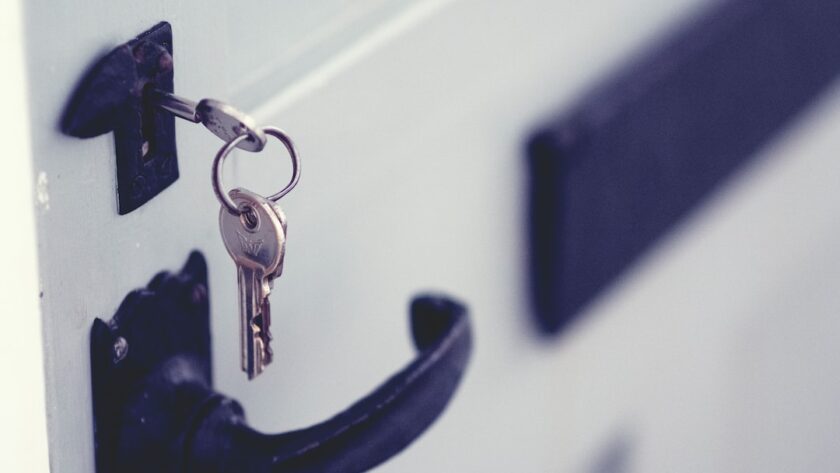Door locks prevent burglars from breaking into your home. They can also keep children from opening doors they shouldn’t, and they help ensure your security system works properly.
Knob locks have a lock cylinder in the knob itself, and they are typically installed as a secondary source of security for residential properties alongside deadbolts. However, they are easy to shim or break into.
Deadbolt
A deadbolt is a key part of any home security system. These locks can be extremely effective at deterring break-ins and ensuring that your family is safe.
There are two main types of deadbolts – single-cylinder and double-cylinder. A single-cylinder lock can only be opened with a key on the inside and is ideal for doors without windows. However, this type of lock can pose a safety hazard in the case of a fire or any other emergency where you would need to exit your home quickly.
When correctly inserted into the strike plate, a deadbolt lock is secured using varying-sized pins in the cylinder that align to open the bolt. This makes them more secure than latch locks which can be easily picked or bumped.
Keypad
Door locks include two parts, the cylinder and the bolt. The cylinder holds the key, allowing it to be turned, and the bolt engages in the door frame to keep it closed.
One of the reasons that smart lock technology has become so popular is that it provides superior security compared to traditional locks. With smart locks, you don’t have to worry about keys falling into the wrong hands, and you can change codes easily when someone moves out.
Additionally, you can open the door remotely using an app or fob for children coming home from school, a repair person arriving at your house, and more. You can also set time-determined access control, or schedules, which is a great feature for business owners who want to keep strict control over employee accessibility.
Mortise Lock
Consider a mortise lock if you need a lock that’s kick-proof and pick-proof but not necessarily a deadbolt. It’s a heavy-duty lock requiring precision cutting into the door. This type of lock could be better for DIYers, but you can still get a professional to install it.
Typically, mortise locks are made from sturdy materials that can withstand years of use. They require more force to break open than cylindrical locks and are harder for crowbars to manipulate. You can also get dual cylinder variants of mortise locks, which need keys on both sides to unlock, so they’re ideal for areas with high traffic like school buildings or hospitals. They also offer a passage function that allows kids to enter their rooms without locking them, making them ideal for interior doors in your home.
Knob Lock
A knob lock includes a round handle with a pin cylinder that sits inside. When you insert the key, the pins line up with holes in the cylinder to open it. The cylinder extends into space carved into the door frame to secure your property.
Choose a high-quality lock with a forged brass plug and cylinder to increase your home security. It should also have a six-pin keying system that’s harder to pick than a five-pin system and a heavy-gauge steel or brass strike plate secured with a 3-inch. Screws that penetrate the framing. The strike plate protects the doorjamb and adds strength to your deadbolt. Replacing the strike plate when you install a new lock is essential. This prevents the old plate from allowing the bolt to engage.
Electronic Locks
These locks are a modern invention that does not require keys to open or close. They use electricity and small motorized components to operate. They are often used on doorknobs for bathroom and bedroom doors or with deadbolts on entry doors.
You can find these types of locks in schools, hotels and offices. They are also popular in homes, as they are easy to use and can be accessed using a keypad or a code. They can also be locked remotely from your smartphone or voice commands.
Most cylinder locks come in single and double-cylinder designs, with the latter providing more security against break-ins. Depending on your door’s hinges, they also come in right-handed and left-handed options. This is important because it will affect how the bolt catches when opening or closing your door.




